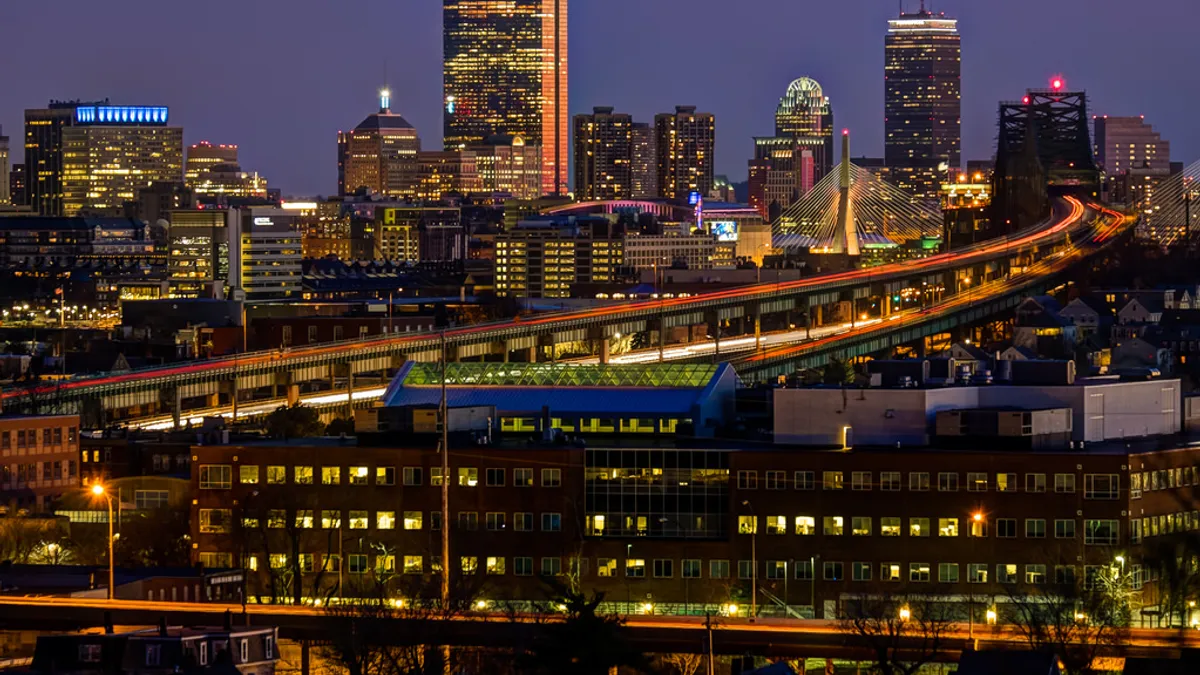Dive Brief:
- The Massachusetts Bay Transportation Authority has yet to nail down a cost estimate for Boston’s 4.7-mile Green Line rail extension project, the Boston Globe reported. The MBTA announced this past August that the project could cost up to $1 billion more than its original estimate of $1.99 billion.
- The Berkeley Group, hired by the MBTA to determine the source of the cost increases, told the MBTA that the authority, along with the contractors, should have been alerted to rising costs as far back as 2012 after receiving budget estimates from contractors hired then. The MBTA has already awarded $206 million in construction contracts for the extension, and those contracts represent overruns of 45%.
- The Berkeley Group also cited an MBTA staff shortage on the project, an unfamiliar contracting process — which they said officials mishandled — and lack of a reliable budget as additional reasons for the overruns.
Dive Insight:
The controversy seems to center around the MBTA’s guaranteed maximum price (GMP) contract with contracting consortium White-Skanska-Kiewit, which involves a building process divided into phases, and the chosen contractor offering a maximum price for each of those phases. The GMP contract is supposed to protect the taxpayer by establishing a top-end price at the outset, so it is unclear why the MBTA would have awarded WSK contracts 10% over budget, as the Globe reported.
In a true GMP contract, which, according to legal experts, is quite common on public works projects, the contractor normally bears the burden of costs beyond the GMP, so there are likely details that have not yet been revealed. In fact, the Globe reported that Ann-Therese E. Schmid, an attorney hired to assess the Green Line contracting process, said the MBTA did not follow best practices by putting a cap on markups.
The Globe noted, "The consultants painted a bleak picture of a process plagued by problems, including an 'excessive drive' to expedite the project with seemingly little regard to rising costs."
According to the Globe, the MBTA will now decide whether to fire contractors and re-bid portions of the work. "It seems like many parties failed to undertake actions that would have helped us much better understand the cost of this project," said Stephanie Pollack, the state transportation secretary.
Joint venture partner Skanska has had a few hits of bad luck on some other of its U.S. projects this year — the Apple "spaceship" campus and the Bayonne Bridge rehab — but it looks as though the Sweden-based construction giant's development division is still booming. Skanska is currently developing two spec commercial buildings in Washington, DC, and will build an $88 million mixed-use high-rise in Boston.











